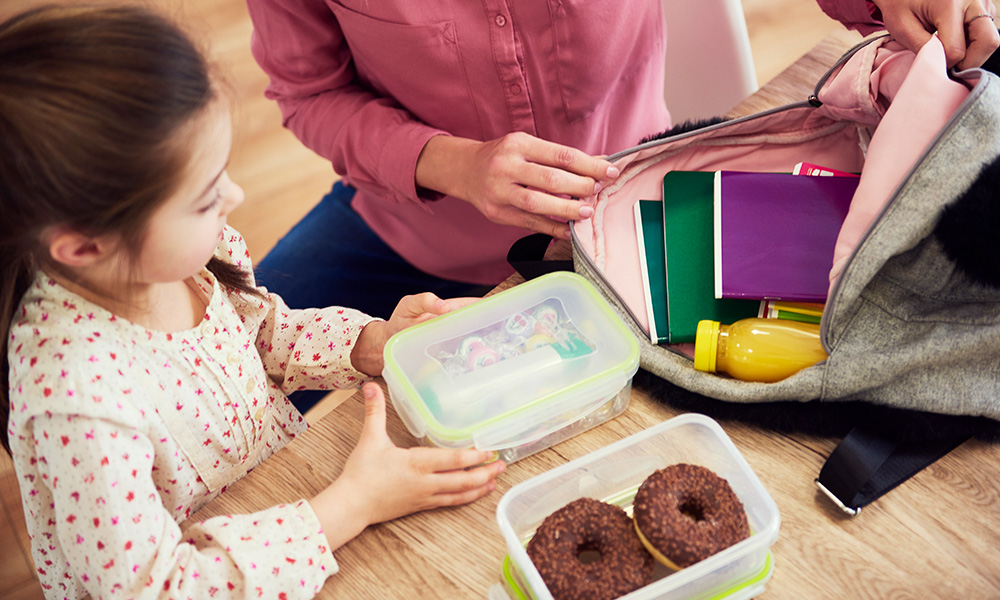
New research from UBCO doctoral student Alanna Shwed shows pandemic restrictions at school made sizable impacts on parents trying to pack lunches.
Parents, you’ve been seen.
New research from UBC Okanagan’s Alanna Shwed has revealed what many parents may already know—packing lunches for your kids has always been stressful, and it got worse during COVID-19.
Findings from Shwed’s study show a need for better support to help ease the burden parents experience when packing their child’s school lunch during an already extremely stressful time.
Shwed undertook the work as a research assistant during her Master of Science degree in Kinesiology at Nipissing University in North Bay, Ontario. She is now pursuing a doctorate at UBCO.
It was conversations with her master’s supervisor Dr. Brenda Bruner and Dr. Kristen Ferguson—both working mothers who pack lunches—that led to this research. They wanted to know if other parents were thinking the same thing: what happens at school lunchtime in a pandemic?
“Mostly it came out of curiosity,” Shwed says, “but also from lived experiences of being parents themselves. The pandemic affected everyone, especially parents. We wanted to find out whether there’s a way that we can more creatively support parents.”
The research began before COVID-19 heaped more pressure on parents trying to balance their children’s nutritional needs and their wants.
Rather than shelve their work until after pandemic restrictions eased, Shwed and her colleagues used it to sharpen their focus.
They recruited nearly 300 participants from parent-specific Facebook groups across Ontario. The parents then completed a detailed, online survey about lunch packing habits. Shwed’s team also scoped all earlier research into the subject to design their survey.
They found sizable shifts.
Some schools restricted access to microwaves while others asked children to take all their garbage home with them.
“When you send your child to school with a yogurt, unless they’re washing the container clean, you’re getting some of that yogurt back in the lunch bag at the end of the day,” she says.
Other schools reduced eating time or changed where students ate lunch. And some teachers were limited in how they could help students with packaging or opening lids.
“Parents told us they’d have to practice,” Shwed says. “They’d get their kids to test out what’s going to work, and what’s not going to work. Before the pandemic teachers used to be able to help kids, so it wasn’t something parents necessarily had to think about.”
The data could help parents and teachers understand each other and the stress of school lunches, better, Shwed says.
Her study finds parents would benefit from more transparency behind the reasons for at-school policies, and schools and school systems are reminded of at-home realities.
“Moving forward, there is opportunity for providing support for parents, for teachers, for school administration to make sure that kids are eating enough and have enough time to eat so they can get through the day,” Shwed says “That’s going to make the day easier for teachers and the evening easier for parents.”
The study appears in the Canadian Journal of Dietetic Practice and Research.